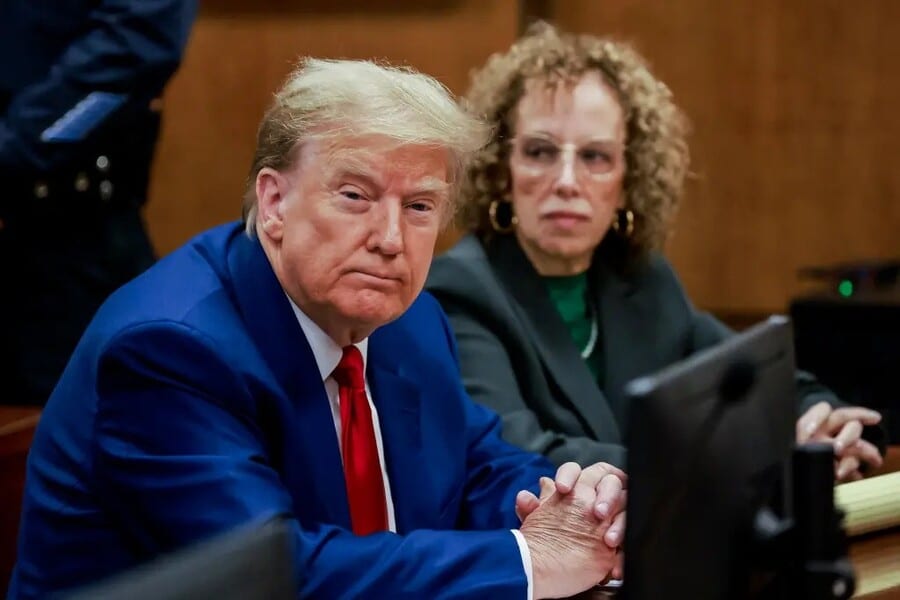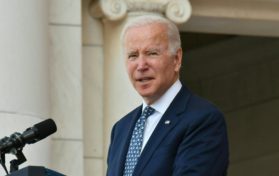
In the bustling heart of New York’s legal arena, former President Donald Trump finds himself ensnared in a legal battle that not only tests the bounds of financial jurisprudence but also casts a long shadow over his future endeavors and the broader implications for accountability in high-stakes real estate and business dealings.
At the heart of this legal labyrinth is a $454 million civil fraud judgment issued by New York Supreme Court Justice Arthur Engoron, stemming from New York Attorney General Letitia James’ exhaustive investigation into Trump’s financial dealings.
The judgment, which Trump and his legal team have vehemently opposed, accuses the former president of inflating the value of his assets on financial statements—a practice that, according to the court, not only “shocks the conscience” but undermines the integrity of financial transactions in the highly competitive world of real estate.
Trump’s response to this judgment has been to fight tooth and nail against the imposition of the bond, an amount he is required to post as a guarantee against the judgment while his appeal is under consideration. Trump’s argument hinges on the claim of impossibility—asserting that securing such a monumental bond from lenders or insurance companies is a Herculean task unfeasible under the circumstances.
The former president’s legal woes are compounded by the timing of the judgment’s enforcement deadline, which ominously coincides with the start of his criminal trial on March 25. This synchronicity highlights a legal and public relations nightmare for Trump, who portrays himself as embattled by a judicial system and political adversaries he claims are out to undermine him at every turn.
The Legal And Financial Quagmire
Trump’s legal strategy has been marked by attempts to navigate around the colossal bond requirement by suggesting alternatives that have been met with skepticism or outright rejection by the courts and the Attorney General’s Office.
His team proposed posting a significantly smaller bond of $100 million and even offered his real estate assets as collateral—a proposal that has been criticized for its lack of transparency and viability.
Attorney General Letitia James’ office has countered Trump’s maneuvers with a steadfast insistence on the full bond amount, arguing that anything less would pose a substantial risk of non-payment and make the enforcement of the judgment, should it be upheld on appeal, significantly more challenging.
The office’s filings pull no punches, portraying Trump’s arguments as procedurally improper and reliant on “unreliable” sources with vested interests in the outcome.
Moreover, James’ legal filings emphasize the precedence of securing appeal bonds in cases with large financial penalties, pointing out that Trump’s situation, while unique in its public profile and the personalities involved, is not legally unprecedented.
Beyond The Legal Filings: A Broader Narrative
This legal skirmish between Trump and James is more than a dispute over a bond; it’s a microcosm of the larger battles playing out across America’s political and legal landscapes. For Trump, the outcome of this case could have profound implications for his business empire, personal fortune, and political aspirations, especially as he eyes a return to the political arena in the 2024 presidential race.
For the public and the business community, the case raises crucial questions about the accountability of high-profile individuals and entities in their business dealings, the integrity of financial statements, and the potential consequences of misleading lenders and investors.
What Lies Ahead
As the legal proceedings inch closer to the March 25 deadline, the eyes of the nation remain fixed on this high-stakes drama. The appellate court’s decision on whether to require Trump to post the full bond amount—or offer him a reprieve—will not only determine the immediate financial fate of the former president but also set a precedent for how similar cases might be handled in the future.
Furthermore, Trump’s simultaneous engagement in multiple legal fronts, including his criminal trial and other civil litigation, paints a picture of a man under siege, battling to preserve his legacy, financial empire, and political future.
The ongoing legal saga involving former President Donald Trump and the New York Attorney General’s Office underscores the intricate dynamics of power, justice, and accountability within the United States. As this legal battle unfolds in New York’s courtrooms, it highlights the foundational principles that underpin American society, emphasizing the critical role of the rule of law in maintaining order and ensuring that individuals in positions of influence are subject to the same legal standards as everyone else.
This case is not just a legal battle; it is a litmus test for the integrity of judicial processes and the principle of equal justice under the law. The outcomes of this legal confrontation have the potential to send shockwaves through the legal, business, and political landscapes, affecting public opinion, corporate governance, and election strategies for the foreseeable future.
As the world watches closely, the case against Donald Trump becomes a symbol of the enduring struggle between governance, accountability, and the quest for justice. Regardless of its outcome, the implications of this legal skirmish will likely shape discussions on transparency, ethical conduct, and the limits of power for generations, underscoring the relentless scrutiny faced by public figures and the importance of holding them accountable.





